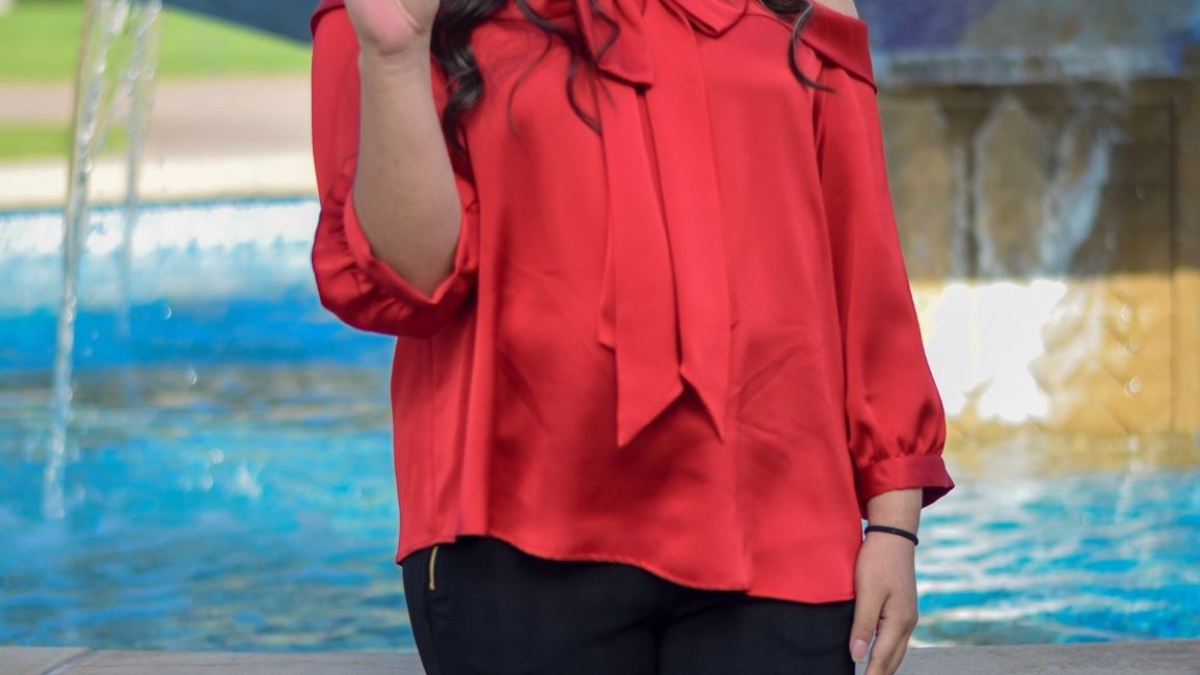ASU grad tells the stories of proud DACA students

ASU grad Maricruz Santoyo spoke with ASU Now about why she’s passionate about telling the stories of students with uncertain immigration status.
Editor’s note: This is part of a series of profiles for fall 2019 commencement.
By the time Maricruz Santoyo arrived at Arizona State University, she knew she had a story to tell. As a DACA (Deferred Action for Childhood Arrivals) recipient originally from Mexico, she felt her senior project, the film “Proud Dreamer,” was important to make in her time at the university.
“I felt there was a lack of information regarding DACA recipients, and I found myself constantly having to explain what it was and why I couldn’t apply for certain scholarships,” she said.
“The aim of the documentary was to inform people about what DACA recipients struggle with in our everyday lives but also show how regardless of the many obstacles we find, we still manage to succeed.”
In the film, Santoyo interviews DACA recipients and supporters in English and Spanish about what immigration status means for Sun Devils’ educational opportunities and for their families. She also interviews DACA advocates from different organizations, including ASU’s DREAMzone.
Santoyo was involved in DREAMzone Support Circles as a student, and she says that attending these meetings helped her meet other DACA recipients she could relate to.
“The support circle made me feel safe, and it was a way for me to talk about the issues I was going through, which prior to assisting the support circle I had not been able to do.”
Santoyo was also involved with many clubs during her time at ASU and she was a treasurer for KoDE, a student club that teaches K-POP choreographies.
Santoyo, who graduated with her filmmaking practices degree this month, took time to speak with ASU Now about her time at ASU, what advice she would give to current students, and what the future looks like for her.
Question: What was your “aha” moment, when you realized you wanted to study the field you majored in?
Answer: I always knew I wanted to be a filmmaker, as growing up one of the favorite activities of my parents and I was watching films of all genres. However, in my second year at ASU, I took an animation class and realized that’s what I wanted to focus on. Ever since I have been learning animation on my own and taking the classes that ASU offers for it.
Q: What’s something you learned while at ASU — in the classroom or otherwise — that surprised you, that changed your perspective?
A: Something I learned at ASU that changed my perspective is that no matter where you come from, you can succeed. I have worked with people of different backgrounds and they have taught me to never give up and to continue working hard.
Q: Why did you choose ASU?
A: I chose ASU due to the resources available to DACA recipients but also because when I researched film programs I felt ASU was a good fit for me.
Q: Which professor taught you the most important lesson while at ASU?
A: Professor Gene Ganssle has always talked about the importance of believing in yourself and the project you’re working on. I kept this in mind when doing my film projects, as working on sets can sometimes be tiresome, but if you are confident and believe in the project you can make the people working with you feel confident too.
Q: What’s the best piece of advice you’d give to those still in school?
A: My best piece of advice for those still in school is don’t ever give up; keep going. There may be times when you have doubts and feel like giving up but don’t. There will always be people willing to help and lend a hand.
Q: What was your favorite spot on campus, whether for studying, meeting friends or just thinking about life?
A: I enjoyed spending time at the Music Building. The music being played by the students helped me relax and study.
Q: What are your plans after graduation?
A: After graduation, I plan to continue learning animation and getting an internship at an animation studio.
Q: If someone gave you $40 million to solve one problem on our planet, what would you tackle?
A: I would tackle accessible education for all since it’s not just DACA recipients who struggle with this.
Written by Austin Davis, Sun Devil Storyteller
More Arts, humanities and education

‘It all started at ASU’: Football player, theater alum makes the big screen
For filmmaker Ben Fritz, everything is about connection, relationships and overcoming expectations. “It’s about seeing…

Lost languages mean lost cultures
By Alyssa Arns and Kristen LaRue-SandlerWhat if your language disappeared?Over the span of human existence, civilizations have…

ASU graduate education programs are again ranked among best
Arizona State University’s Mary Lou Fulton College for Teaching and Learning Innovation continues to be one of the best…

